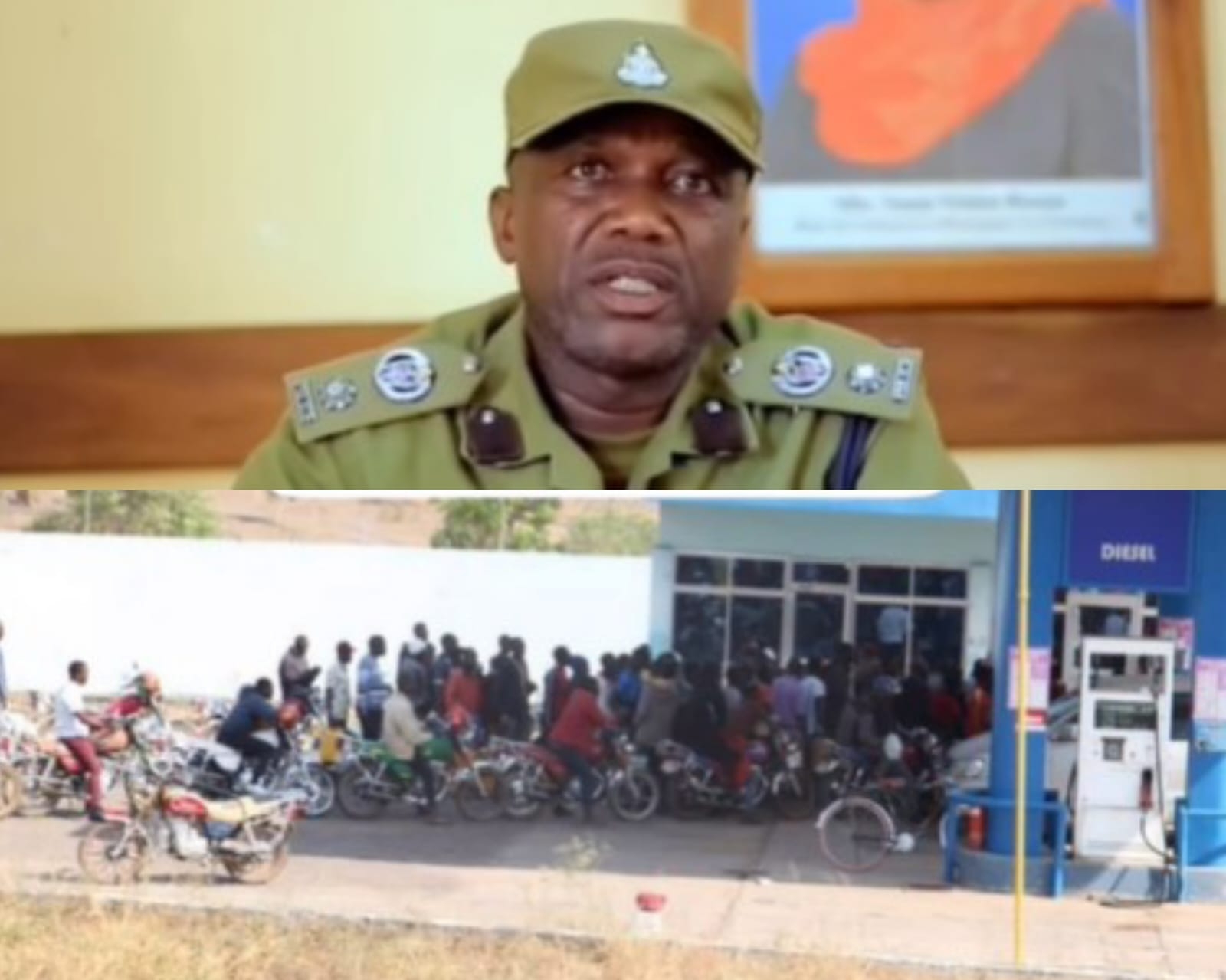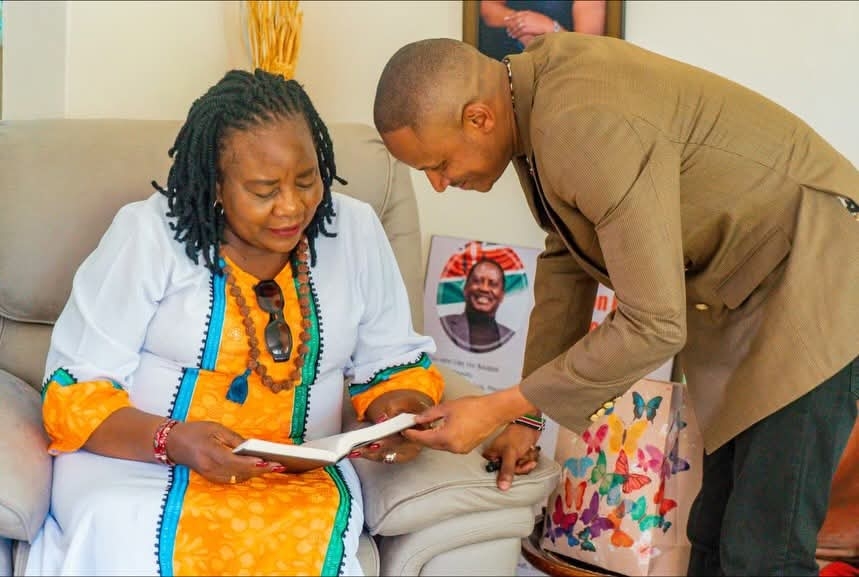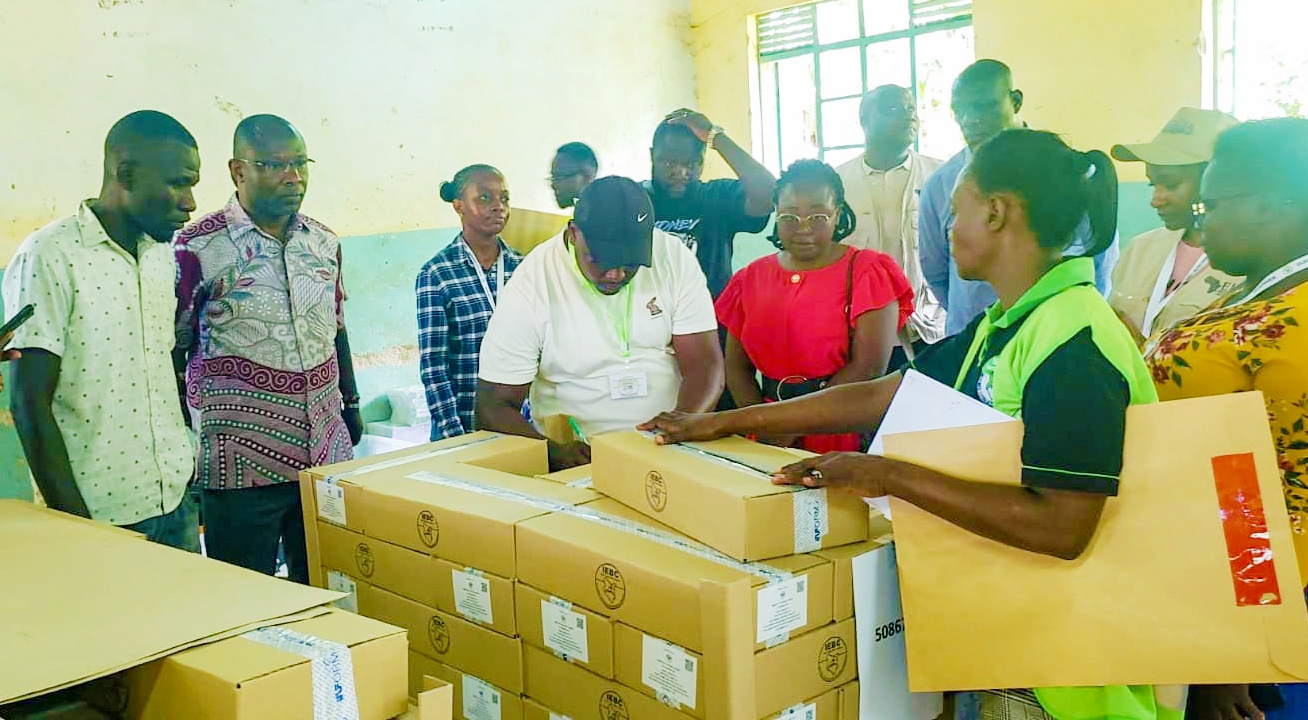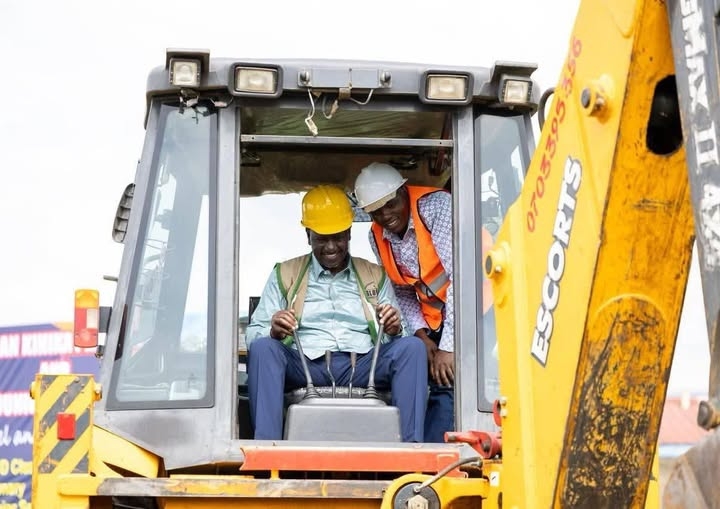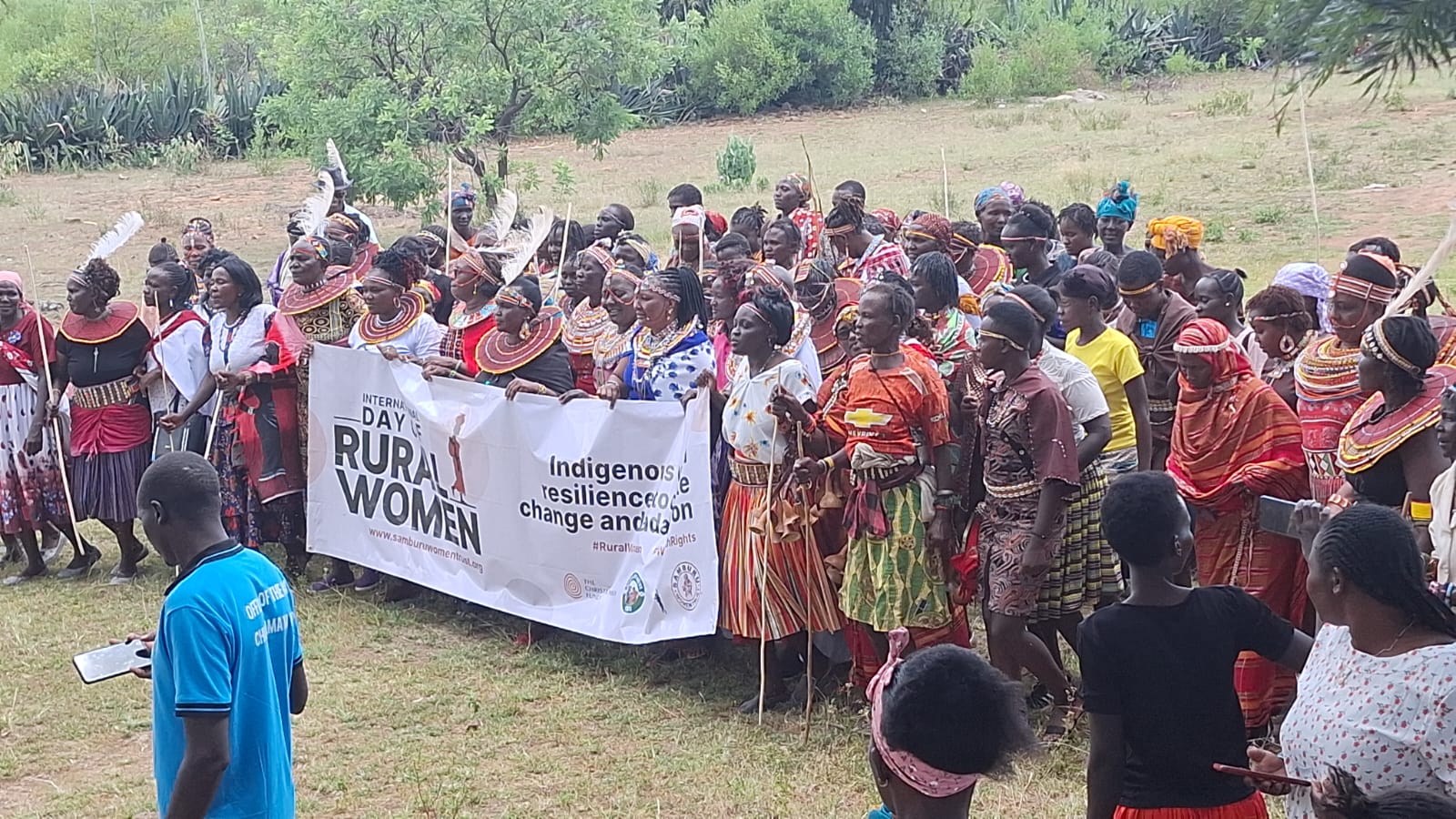
Women leaders from indigenous pastoralist communities’ lobby groups have called for peace and coexistence among the different groups even as climate change negatively impacts their livelihoods due to droughts.
Speaking during the commemoration of International Day of Rural Women, the leaders noted that despite efforts towards attaining Goal 2 of Sustainable Development Goals to end hunger through pastoralism and small-scale farming, they still face numerous challenges that hinder their full participation in leadership and sustainable development.
The meeting was held in Nakwang’, Sossian ward, at the border of Laikipia and Baringo counties, to bring together different communities living in the areas. This year’s theme was “Rural Women Cultivating Good Food For All”.
They noted that given the arid and semi-arid environment in which the communities live, climate change has worsened their situation by causing unpredictable weather patterns, droughts, and environmental degradation.
Consequently, it has become harder to rear livestock and grow crops due to water scarcity and lack of pastures.
The limited water for cattle and degraded grazing fields, as well as the grabbing of land, have limited their options, often leading to conflicts among the pastoral communities as well as their farming neighbours.
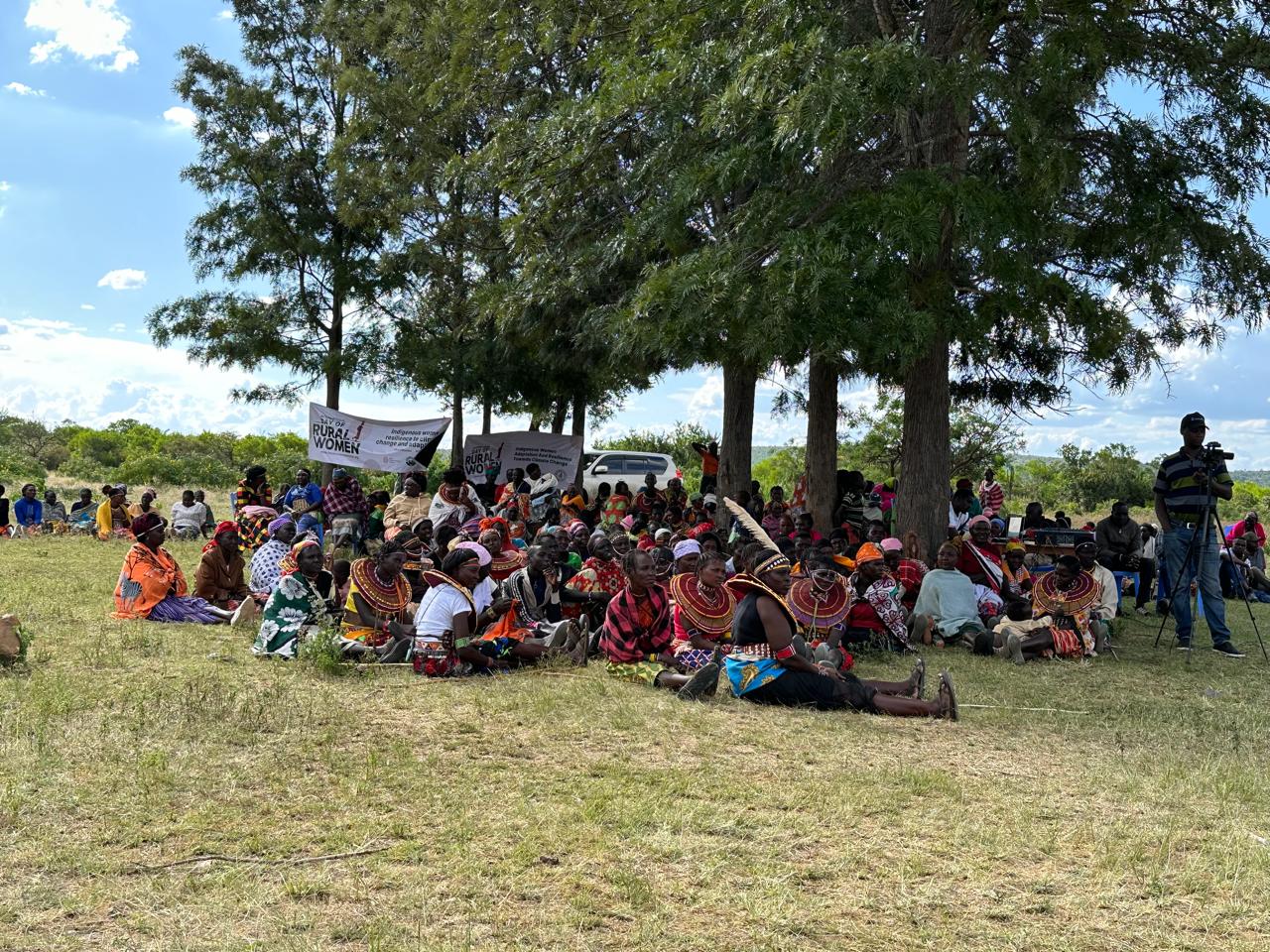
Often, when pastoral groups struggle to maximise their share of the limited grazing resources, especially during droughts, competition for these resources has led to conflicts. And when cattle die, cases of raids to restock have been reported.
According to a Relief Web situation report in August, the escalation of the conflicts in the North and South Rift regions is primarily attributed to conflicts among pastoral communities, also in the neighbouring counties of Turkana, West Pokot, ELgeyo Marakwet, and Samburu counties which have been exacerbated by resource scarcity as a result of experienced drought.
The update put the cumulative number of displaced households at 4,454, up from 2,951 in March 2024, while the fatalities had increased to 48 and the number of injuries to 36.
Samburu Women Trust Executive Director Jane Meriwas noted that such a meeting provides a platform where “collective voices of Indigenous women are heard, and their unique challenges and needs are addressed by bringing together policymakers and women leadership to interrogate and prioritise their agenda”.

In her call for coexistence, Meriwas said that as women leaders, they want to show that among the pastoralists, there is no community a woman cannot get married to.
“Even me, if I get a Pokot man who can pay bride price in cattle and camels, I will readily come to the Pokot. So women don’t have those boundaries. You can get married in Kikuyu land, Turkana, Samburu, and any other place,” she said.
She added that as women leaders, they will move ahead united in preaching and spreading peace and make sure women in the rural areas are well aware of their rights and that those from the pastoralist communities speak in one voice.
Meriwas further noted that constant clashes in the areas have affected social services such as access to education and the deployment of service providers such as clinical officers and nurses to local dispensaries. She urged the locals to ensure they send their children to school, which she noted will help reduce the inter-community conflicts.
“Take your children to school because even if cattle are our livelihood, the reality is we are losing them to drought. Every year, the climate crisis is getting worse, and although it has rained this year, we don’t know how the weather will be," Meriwas said.
"Where will we take these cattle? What if they are wiped out? What will we do? Let’s take children to school because that is what will end poverty among us,” Meriwas said, adding that the boys who are not taken to school and go grazing instead are the ones who go fighting.
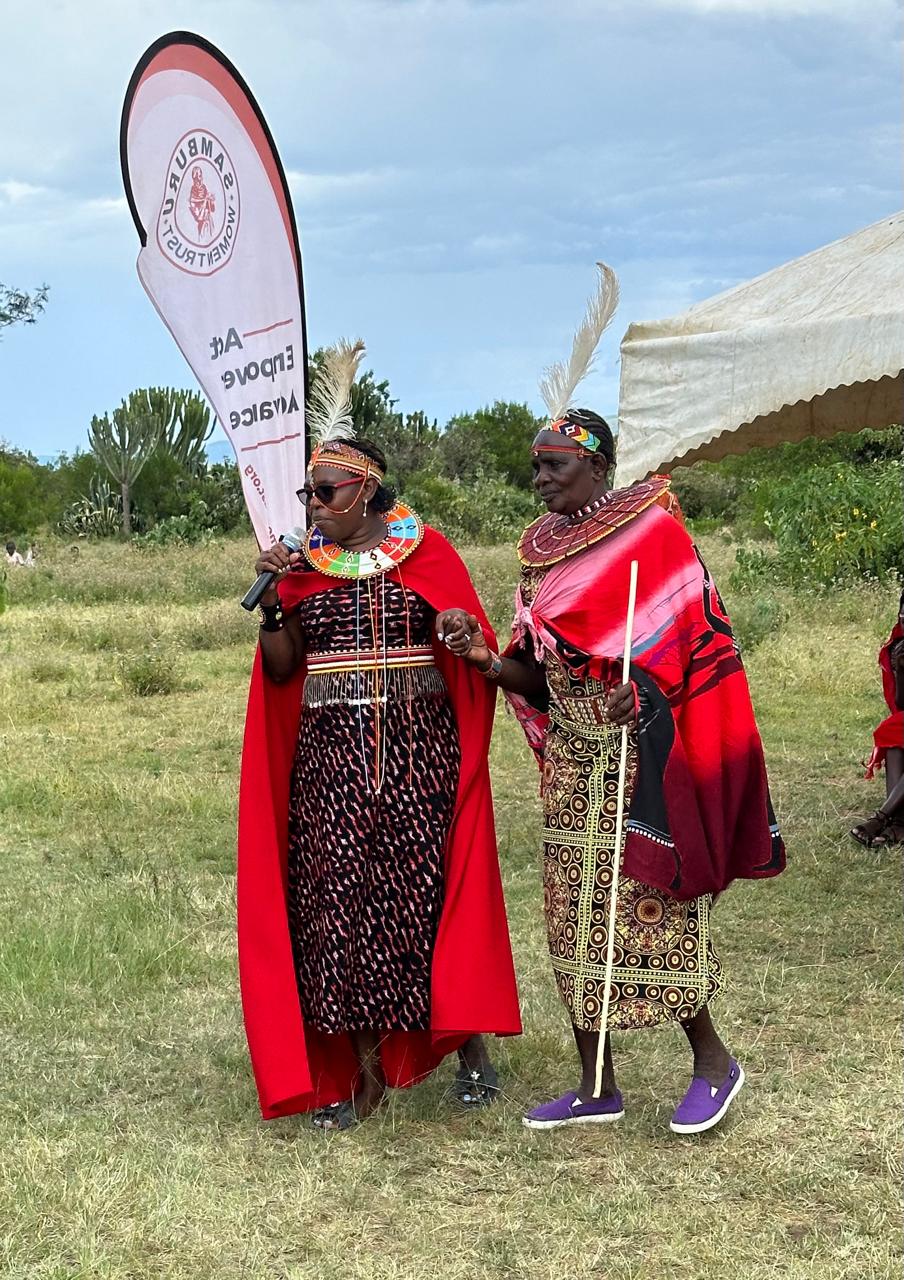
She further urged them to get involved in governance and politics so that they could have representation at the county assembly and present their challenges and grievances.
The residents, however, decried that access to school is limited as the institutions are few and far away.
Ripote Pokot Initiative Executive Director Julia Loching'amoi, who was the host, said the event was of immense importance to their future enlightenment on matters of climate and climate change, as well as the Indigenous people’s resilience to climate change and adaptation.
Mama Julia said such forums should continue to fruition for the benefit of the community.
“The community at Nakwang is grateful, happy, and appreciates this momentous gesture of kindness; it is in their prayers, wishes, and hopes, that such an undertaking continues. We welcome you back as you are now wholly considered as an integral part of the community - please feel at home wherever the idea to come back to us kicks in,” she said.



